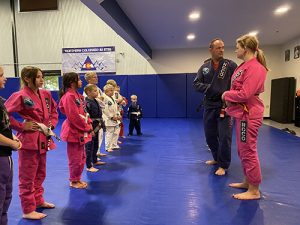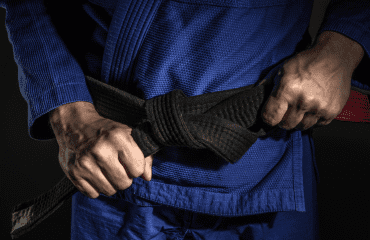
Starting your first jiu-jitsu class can be an exciting step into the world of martial arts and self-defense. For beginners and those curious about Brazilian jiu-jitsu (BJJ), knowing what to expect in a typical BJJ class can ease nerves and build confidence. Here’s a closer look at what goes on in a BJJ class and how it benefits beginners and advanced students alike. Before attending your first class at a new school, many students worry about what to expect. A good coach will help ease these concerns by taking time to talk through the basics with you.
What Should You Wear to Your First Jiu-Jitsu Class?

Your attire in BJJ is essential for comfort and mobility. Most jiu-jitsu classes will have students wearing a gi, a traditional uniform essential for many techniques. In some cases, gyms or academies may allow beginners to start without a gi, using a rash guard or workout clothes instead. It’s wise to check with your instructor before class to ensure you’re prepared. Staying hydrated and maintaining a balanced diet will also help you keep your energy up and prepare your body for training. Many students train multiple times per week at their chosen gym, and while some focus on self-defense, others prepare for competition.
How Does a Typical BJJ Class Start?

A warm-up is a fundamental part of any BJJ class. This part of training prepares your body for the workout ahead and helps prevent injuries. Typical warm-ups include activities like jogging, jumping jacks, and bodyweight exercises to get your heart rate up. Many classes also incorporate movement drills that mimic BJJ techniques, helping you get comfortable with the mat. This warm-up stage is an essential part of class, setting you up to safely dive into learning new skills. Of course, proper warm-up helps prevent any potential injury during training.
What Techniques Will You Learn as a Beginner?

In your first BJJ class, the focus will likely be on the basics. Instructors will introduce core techniques designed to help you understand fundamental concepts of self-defense and grappling. As a beginner, expect to work on positioning, escapes, and controlled movements. These skills form the foundation of BJJ and serve as the building blocks for more advanced techniques in later classes.
Will You Need a Partner to Practice?

Yes, training partners are a key part of BJJ. Partner work allows you to practice techniques safely and effectively. Your instructor will usually pair you with someone who can help you learn at your own pace. It’s essential to maintain respect for your partner and focus on controlled movements. Building rapport with training partners creates a supportive learning environment and keeps everyone safe on the mats.
How Does Sparring Work in BJJ?

Sparring, also known as “rolling,” is the practical application of techniques in a controlled environment. In your early days of training, sparring might be limited or structured with guidance from the instructor. It’s a unique part of the sport that allows you to test your skills against a partner. While sparring may sound intense, learning to defend yourself effectively takes time, and instructors will often break down complex movements into simpler parts. It’s done with safety in mind, and advanced students will help ensure a positive learning experience.
What Role Do Instructors Play During Class?

The role of instructors in BJJ is vital. They are there to guide, demonstrate, and provide feedback. Instructors help create a safe environment, adjusting techniques to individual levels and ensuring safety for all students. Many schools or academies, like NOCO Jiu Jitsu and Self Defense, emphasize the importance of individualized attention, which helps beginners build confidence. Their guidance is especially valuable in helping beginners overcome any initial worries about injuries or misunderstandings.
How Can BJJ Improve Your Fitness?
BJJ is not just about self-defense; it’s also a fantastic workout. The combination of technique practice and sparring sessions offers a full-body workout that increases strength, flexibility, and endurance. With regular practice, BJJ can contribute to a balanced fitness regimen, helping to improve heart rate, core strength, and agility. Most people who start BJJ notice benefits like increased energy, improved mood, and a stronger, healthier body.
What Should You Expect in Terms of Physical Contact?
Brazilian jiu-jitsu involves close physical contact with training partners as you practice grips, holds, and positional control. This grappling nature of the sport is a unique aspect of BJJ, allowing you to develop body awareness and control. Mutual respect between students helps everyone feel comfortable during practice, and your instructors will guide you through safe ways to engage with others.
Is Jiu-Jitsu Safe for All Ages?

One of the great things about BJJ is its adaptability for ages and fitness levels. Whether you’re a young beginner or an older student, BJJ can be tailored to meet your individual goals and needs. NOCO Jiu Jitsu and Self Defense welcomes students of all ages, providing a supportive environment where everyone can progress safely. Safety remains a priority, and instructors ensure that everyone is following techniques correctly.
What are the Main Goals for Beginners in BJJ?

For beginners, the primary goal is to learn the basics, build confidence, and have fun. Emphasis is placed on mastering fundamental self-defense moves, understanding the technique, and developing a strong mindset. The first step in BJJ is about getting comfortable with the process, gaining body awareness, and gradually learning to trust yourself on the mats.
How Does Progress Happen in Jiu-Jitsu?
In BJJ, progress is marked by the belt system, starting with the white belt and moving toward higher ranks as students develop their skills. Advancing through the ranks requires dedication, regular training, and a focus on technique improvement. It’s important to remember that progress isn’t just about the belt; it’s about understanding and applying techniques. Consistent practice and participation in classes and open mat sessions provide students with the tools to grow at their own pace.
Can Jiu Jitsu Be Fun and Safe?
Yes! BJJ is not only effective for self-defense but is also fun. Many practitioners enjoy the camaraderie, the challenge, and the fitness benefits of BJJ. NOCO Jiu Jitsu and Self Defense is a place where fun and safety go hand-in-hand, with a community of supportive students and dedicated coaches. The academy offers structured advanced classes and open mat sessions, encouraging students to enjoy the process while building lifelong skills.
Ready to Start Your BJJ Journey?

If you’re interested in trying BJJ for the first time, the best thing you can do is take that first step. Start with a first class to experience the benefits of training in Brazilian jiu-jitsu. Sign up at NOCO Jiu Jitsu and Self Defense to begin your journey into a martial art that challenges both body and mind.
We hope this overview of what to expect in your first jiu-jitsu class has answered some of your common questions. At NOCO Jiu Jitsu and Self Defense, we’re here to support you every step of the way. BJJ can provide fitness, fun, and a sense of accomplishment—whether you’re looking for self-defense skills or a rewarding physical workout. Give it a try, and let’s see how far BJJ can take you!
Frequently Asked Questions:
- Q: What should I wear to my first jiu-jitsu class?
A: Most classes require a gi (traditional uniform), but some gyms may allow beginners to start with a rash guard or workout clothes. It’s best to check with your instructor beforehand.
- Q: How does a typical BJJ class begin?
A: Classes typically start with a warm-up that includes jogging, jumping jacks, and bodyweight exercises, followed by movement drills that mimic BJJ techniques.
- Q: Will I need a training partner?
A: Yes, partner work is essential in BJJ. Instructors usually pair you with someone who can help you learn at your own pace in a safe, controlled environment.
- Q: What is sparring or “rolling” in BJJ?
A: Sparring is the practical application of techniques in a controlled environment. For beginners, it’s often limited or structured with guidance from the instructor.
- Q: Is BJJ safe for all age groups?
A: Yes, BJJ can be adapted for different ages and fitness levels. Instructors ensure safety by tailoring techniques to individual needs and abilities.
- Q: What kind of techniques will I learn as a beginner?
A: Beginners focus on basic techniques including positioning, escapes, and controlled movements, which form the foundation for more advanced skills.
- Q: How does BJJ help with fitness?
A: BJJ provides a full-body workout that increases strength, flexibility, and endurance. Regular practice can improve heart rate, core strength, and agility.
- Q: How does progress work in BJJ?
A: Progress is marked through the belt system, starting with a white belt. Advancement requires dedication, regular training, and technique improvement.
- Q: What should I expect in terms of physical contact?
A: BJJ involves close physical contact with training partners while practicing grips, holds, and positional control. The sport emphasizes mutual respect and comfort between students.
- Q: What role do instructors play in BJJ classes?
A: Instructors guide students, demonstrate techniques, provide feedback, and create a safe training environment. They adjust techniques to individual skill levels and ensure safety for all students.




